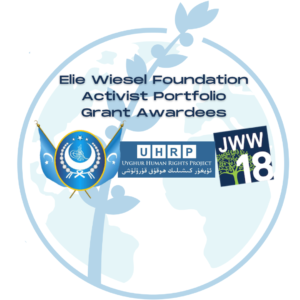Janice Kamenir-Reznik
December 7, 2012
Today we visited the Farchana refugee camp. The camp is located in the remote and isolated Chadian village of Farchana not far from the border with Sudan. We have come to witness the latest installation of our JWW Solar Cooker Project in the Farchana Refugee Camp, to meet with our implementing partner, CORD (Christian Outreach for Relief and Development) and to meet the refugees who are the beneficiaries of the project.
Nine years ago, in a calculated effort to ethnically cleanse the Darfur region of Sudan of its non-Arab population, the Sudanese government incentivized the Janjaweed militia to carry out a genocide. The Darfur genocide forced 3 million Darfuris from their villages. Hundreds of thousands were killed, hundreds of thousands of women were raped, and all of their livestock, grains, and other possessions were looted by the Janjaweed with the consent and blessing of the Sudanese government. Any non-Arab was rendered homeless; wandering in what I am sure is the harshest desert conditions in the world.
Approximately 250,000 of these Darfuri survivors escaped death by crossing into neighboring Chad. The Farchana refugee camp became home to some 25,000 of these Darfuri refugees, most of whom came here bereft from having lost children, parents, and husbands in the genocide. With few exceptions, they arrived at Farchana camp in a severely traumatized condition; they had walked hundreds of miles without food or water and had endured horrific losses and violence.
It is against that backdrop that a handful of international refugee relief organizations quickly mobilized to provide a modicum of food, water, and land for what was intended to be a temporary stay in Chad. Well, 9 years have since passed, and what was supposed to be a temporary shelter has become a somewhat rooted village.
Our first stop at the camp was the Solar Cooker Project workshop. We walked into a dark concrete room and were greeted by some 50 women who work as trainers for the project. As we entered the room, the women were singing to us, obviously as a means of welcoming us to the camp. I was immediately struck by the irony that the words were joyous words of welcome, but the voices revealed a different sentiment. When they finished the song, there were no smiles on their faces. The difficulty and the sadness of the life they are living was evident without them saying a single word. The only other time in my life that I witnessed a group of faces reflecting such profound sadness was five years ago when I visited the Iridimi refugee camp in northern Chad.
During the course of the meeting I was given the opportunity to address the group to tell them about what is widely known in the Farchana camp as “JWW,” CORDs partner in the Solar Cooker Project. I explained that we are a Jewish organization established to combat genocide, largely motivated by our own experience of having suffered a genocide that destroyed one third of our people. Our mission, I explained, is to ensure that we do not stand idly by while groups are being victimized by ethnic cleansing. After I spoke one of the women stood up and said that she was so grateful for our visit and for the existence of JWW, because she felt that so much time had passed since their trauma began that the people of Darfur surely had been forgotten. A sadness swept over me as she spoke, as indeed, much of the world has replaced its concern for the genocide in Darfur with countless other problems which have arisen over the past 8 years.
But, coupled with my sadness was a tremendous sense of responsibility to continue the work of JWW. Our persistent voice not only fulfills a moral mandate to give voice to the voiceless and to advocate for the vulnerable, but it also provides many with the hope of a better future.


